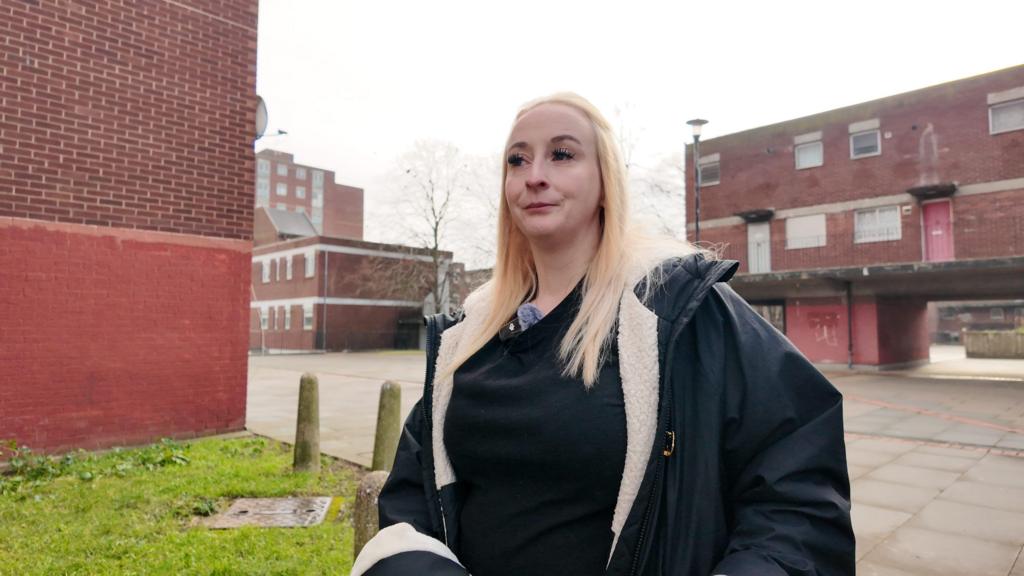Danielle and her three children have endured four moves in the past nine months due to homelessness. A Section 21 eviction left them reliant on temporary council housing, including shared accommodation and hotel rooms.
Despite government pledges for increased social housing, Danielle told the BBC she anticipates a long wait for permanent council housing.
Chancellor Rachel Reeves’ Spending Review outlined a plan to fulfill the government’s manifesto commitment of building 1.5 million new homes during this parliament.
A £39 billion, ten-year investment in social and affordable housing in England has been announced – a development hailed by social landlords and housing charities as transformative.
Many regions face severe affordable housing shortages. London’s social housing waiting lists, according to London Councils’ analysis of government data, are at a ten-year high.
The government highlights that this investment, averaging £3.9 billion annually, surpasses the previous administration’s average annual spend of £2.3 billion on affordable housing.
Affordable housing encompasses properties rented at up to 80% of market rates, shared ownership, and social rent properties at approximately 50% of market rates.
Further details regarding location, builders, and funding allocation for social rent homes are pending.
Danielle, contacted via the BBC’s Your Voice initiative, feels the announcement comes too late for her family but hopes it offers her children better future prospects. For her, a permanent home signifies security and stability for her children, preventing future displacement.
Frequent relocations have been incredibly disruptive, causing immense stress and forcing her children to constantly adapt to new environments. Her current temporary housing is 18 miles from their school, requiring early mornings and impacting their academic performance.
The billion-pound investment has been met with relief by social landlords who previously warned that without substantial and certain funding, the government’s housebuilding targets would be unattainable.
The government has also guaranteed social landlord rental income for the next decade, enabling better investment planning for housing associations.
Kate Henderson of the National Housing Federation called the announcement “transformational,” while Shelter’s Charlie Trew emphasized the need for a clear target for social rent homes, highlighting the unaffordability of many so-called “affordable” housing options.
Shelter’s analysis reveals that in over 40% of English local authorities, one-bedroom “affordable rent” homes are unaffordable for low-wage earners. Mr. Trew advocates for a social rent target to ensure genuinely affordable housing.
Housebuilders, while welcoming the long-term positive impact, expressed hope for immediate support for the wider housing sector, such as reinstating the Help to Buy scheme.
Neil Jefferson of the Home Builders Federation noted that housing supply and investment remain significantly behind where they should be, a year into the new parliament.
Amidst international tensions, the UK government faces a domestic housing crisis, according to Laura Kuenssberg.
Funding is allocated to projects in Oxfordshire, Nottinghamshire, and Yorkshire.
A regeneration fund is announced, but details for recipients are still pending.
Reeves states the spending review addresses Welsh ministers’ requests for rail and coal tip funding.
Support for the Viking CCS Humberside scheme is confirmed in the Spending Review.

